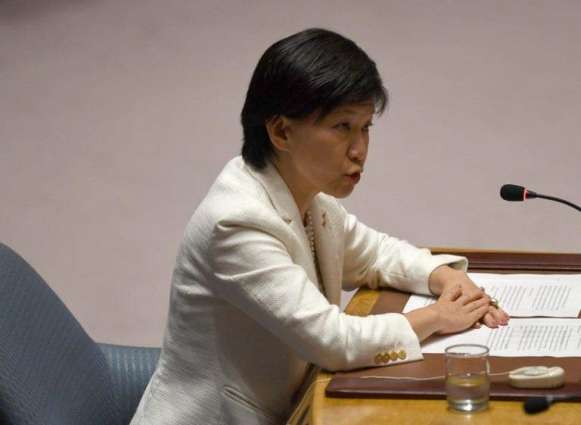The United Nations welcomes any initiatives that help to discourage states from taking destabilizing steps following the demise of the Intermediate-Range Nuclear Forces (INF) Treaty, UN Under-Secretary-General of Disarmament Affairs Izumi Nakamitsu told Sputnik in an interview
UNITED NATIONS (Pakistan Point News / Sputnik - 27th January, 2020) The United Nations welcomes any initiatives that help to discourage states from taking destabilizing steps following the demise of the Intermediate-Range Nuclear Forces (INF) Treaty, UN Under-Secretary-General of Disarmament Affairs Izumi Nakamitsu told Sputnik in an interview.
After the United States' unilateral withdrawal from the crucial arms control treaty � which was designed to keep Europe from becoming a hostage between nuclear superpowers � Russian President Vladimir Putin proposed a moratorium on the deployment of strategic nuclear weapons in key areas of Europe and Asia. The proposal was sent to relevant countries and organizations but has received a wholly muted response.
"Any proposal that would discourage States from any destabilizing actions � any genuine proposal like that will be welcomed. And I really hope that countries will seriously consider measures, in the post-INF period, in order to maintain stability in the region," Nakamitsu told Sputnik, adding that she was not familiar with the detail of Putin's moratorium.
Nakamitsu expressed confidence that nations, especially NATO member states, are considering different options and measures to maintain stability in the region at the heels of a collapsed INF Treaty.
The INF Treaty was terminated on August 2 as the United States formally suspended its obligations under the accord six months earlier.
Russia and the United States had repeatedly accused the other of violating the INF Treaty, which banned any ground-launched ballistic and cruise missiles with ranges of 500 to 5,500 kilometers (310 to 3,417 miles).
The treaty was negotiated and signed in 1987 by then Soviet leader Mikhail Gorbachev and US President Ronald Raegan and remained, along with the New START (Strategic Arms Reduction Treaty), one of the key treaties that kept a nuclear arms race at bay.




